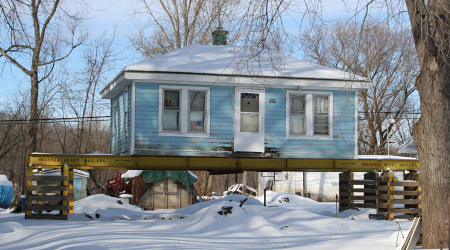Home Buying Problems

Owning your own home can be a dream come true for many people and it is most likely the most important financial decision in anyone's lifetime. The process of purchasing a home can be stressful in and of itself from having to deal with real estate agents to looking for the right property in a good location. Even if everything goes well when you buy your home you always wonder in the back of your mind if you missed something which will cause you problems later on. The following are some primary areas of concern which you should be on the lookout for to save money and hassle once the property is closed.
New homes can have their issues but because it is a recently constructed property all structural issues are covered under warranty. If a pipe springs a leak or the hot water heater keeps turning off then these are issues would be covered and repaired for by the builder. Pre-existing homes however often don't cover such failures and so it is important to be on the look out for problem areas. Many if not all issues should be caught during the home inspection by a licensed professional. It is the home inspector's job to analyze all aspects of the property to ensure it is in working order and structurally sound. That doesn't mean you can't educate yourself beforehand and ask questions during the home inspection. You may also want to make amendments to the closing paperwork if you're worried about issues like roof failure or shorts in the electrical system.
Repairing or replacing a roof can often be the most expensive repair to be conducted on a pre-existing home. Make sure the inspector takes extra care when examining the roof to look for signs of water damage or structural defects such as sagging or joint lift. If the roof has been replaced recently verify the date and ask the inspector if what you're being told corresponds with what they are finding. If there is water damage determine the extent because any moisture seeping through the rafters into the living area below could result in mold damaging drywall requiring additional repairs. Roofs can often cost 20,000 to $30,000 if not more to replace so a sound roof is of the utmost importance.
Plumbing should also be another area of concern not so much because of repair cost as pipes and fittings can be fairly inexpensive but more so because of the damage that caused by plumbing failure. Even the most basic inspection will verify that all toilets flush and all sinks run both hot and cold water and drain properly. Showers will also be tested to verify proper water flow and pressure. What is more worrisome is what you can't see which is pipes coming up through the foundation or in the walls. If there is any sort of indication that a pipe failure is imminent then determine the cost of full plumbing replacement and have the house price lowered by that amount if not a little more during negotiations.
As in the case with plumbing, the home wiring electrical system is just as important not necessarily from fear of the home catching fire but more so from the damage faulty electrical can cause appliances and electronics. All light switches and outlets should be thoroughly tested to verify they are in proper working order. You might also request an electrician to re-certify and test the breaker box and wiring. Plumbing and electrical of the lifeblood of the house just like the blood running through your veins. They need to be fully functional not only because it would be difficult to live in a house without them but because the house may actually become unlivable if there is flooding or fire.
As the saying goes a house is only as solid as its foundation. Foundations are easy to inspect because any failure will become readily apparent both in the concrete slab itself but also in specific situations within the home structure. If a foundation is buckling than the walls of the home will show cracks at the seams in addition the walls separating or looking and even. Exterior evaluation of the foundation would reveal crumbling or cracks greater than 1/8 of an inch. It goes without saying that home with any sort of foundation and resulting structural damage should be avoided at all costs. Regardless of the homes quality, foundation repair more often than not will be cost prohibitive and not worth the effort and expense.
All of the aforementioned issues can be avoided when purchasing a new home as the builder is obligated to provide warranties and make all repairs to the structure and foundation. If however you choose to buy a pre-existing home keep in mind some of the major problem areas and make sure a thorough home inspection is properly conducted. Once you move into a home and are settled in with your family and furniture it can be a nightmare to address these issues after the fact.







